Related Research Articles
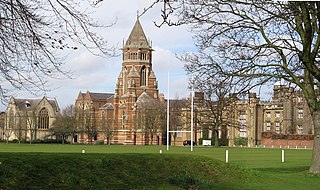
Rugby School is a public school in Rugby, Warwickshire, England.
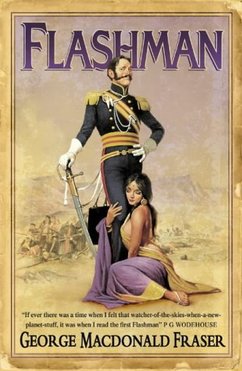
Sir Harry Paget Flashman is a fictional character created by Thomas Hughes (1822–1896) in the semi-autobiographical Tom Brown's School Days (1857) and later developed by George MacDonald Fraser (1925–2008). Harry Flashman appears in a series of 12 of Fraser's books, collectively known as The Flashman Papers, with covers illustrated by Arthur Barbosa and Gino D’Achille. Flashman was played by Malcolm McDowell in the Richard Lester 1975 film Royal Flash.

Thomas Arnold was an English educator and historian. He was an early supporter of the Broad Church Anglican movement. As headmaster of Rugby School from 1828 to 1841, he introduced several reforms that were widely copied by other noted public schools. His reforms redefined standards of masculinity and achievement.
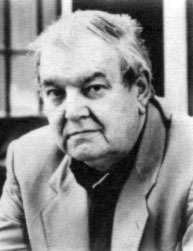
George MacDonald Fraser was a Scottish author and screenwriter. He is best known for a series of works that featured the character Flashman. Over the course of his career he wrote eleven novels and one short-story collection in the Flashman series of novels, as well as non-fiction, short stories, novels and screenplays—including those for the James Bond film Octopussy, The Three Musketeers and an adaptation of his own novel Royal Flash.

Tom Brown's School Days is a novel by Thomas Hughes, published in 1857. The story is set in the 1830s at Rugby School, an English public school. Hughes attended Rugby School from 1834 to 1842.
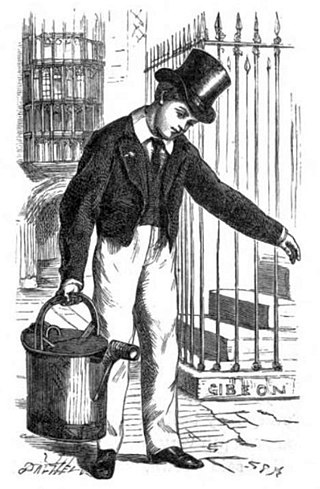
Fagging was a traditional practice in British public schools and also at many other boarding schools, whereby younger pupils were required to act as personal servants to the eldest boys. Although probably originating earlier, the first accounts of fagging appeared in the late 17th century. Fagging sometimes involved physical abuse and/or sexual abuse. Although lessening in severity over the centuries, the practice continued in some institutions until the end of the 20th century.
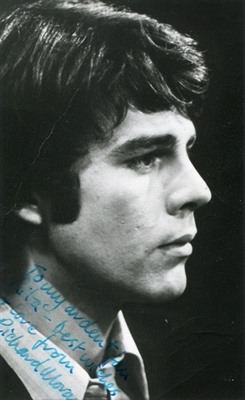
Richard Morant was an English actor.
Tom Brown is a fictional character created by author Thomas Hughes in his work Tom Brown's School Days (1857) which is set at a real English public school—Rugby School for Boys—in the 1830s when Hughes himself had been a pupil there. Tom Brown is based on the author's brother, George Hughes, and George Arthur is based on Arthur Penrhyn Stanley.

Flashman is a 1969 novel by George MacDonald Fraser. It is the first of the Flashman novels.

Flashman at the Charge is a 1973 novel by George MacDonald Fraser. It is the fourth of the Flashman novels. Playboy magazine serialised Flashman at the Charge in 1973 in their April, May and June issues. The serialisation is unabridged, including most of the notes and appendixes, and features a few illustrations, collages from various paintings and pictures to depict a period montage of the Charge and Crimea.
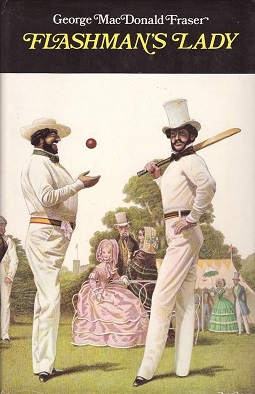
Flashman's Lady is a 1977 novel by George MacDonald Fraser. It is the sixth of the Flashman novels.

Flashman and the Tiger is a 1999 book by George MacDonald Fraser. It is the eleventh of the Flashman books.

Sir Reginald Hanson, 1st Baronet, JP, DL, FSA was Lord Mayor of London and a British Conservative Party politician.
Barnet Kellman is an American theatre, television and film director, television producer and film actor, and educator, best known for the premiere productions of new American plays, and for the pilots of long-running television series such as Murphy Brown and Mad About You. He is the recipient of two Emmy Awards and a Directors Guild of America Award. He is the co-founder and director of USC Comedy at the School of Cinematic Arts, and holds the school's Robin Williams Endowed Chair in Comedy.
Harry "Scud" East is a fictional character in the book Tom Brown's School Days. He is perhaps the closest friend of Tom Brown. His nickname is Scud because he is so quick on his feet. In the book he is referred to as East.

Tom Brown's Schooldays is a 2005 British television film directed by Dave Moore and starring Alex Pettyfer and Stephen Fry. It is an adaptation of the Thomas Hughes 1857 novel of the same name. It aired on ITV on 1 January 2005 and was released on DVD 9 days later.

Tom Brown's School Days is a 1940 coming-of-age drama film about a teenage boy's experiences at Rugby School, Warwickshire in the early 19th century under the reforming headmastership of Thomas Arnold. It stars Sir Cedric Hardwicke, Freddie Bartholomew and Jimmy Lydon in the title role. The film was based on the 1857 novel, Tom Brown's School Days by Thomas Hughes.

Tom Brown's Schooldays is a 1951 British drama film, directed by Gordon Parry, produced by Brian Desmond Hurst, and starring John Howard Davies, Robert Newton and James Hayter. It is based on the 1857 novel of the same name by Thomas Hughes.
Tom Brown's Schooldays is a 1916 British silent drama film directed by Rex Wilson and starring Joyce Templeton, Jack Coleman and Evelyn Boucher. It is an adaptation of the 1857 novel Tom Brown's School Days by Thomas Hughes. It is set at Rugby School in the 1830s where Tom Brown encounters the villainous bully Flashman. It was made at Catford Studios.
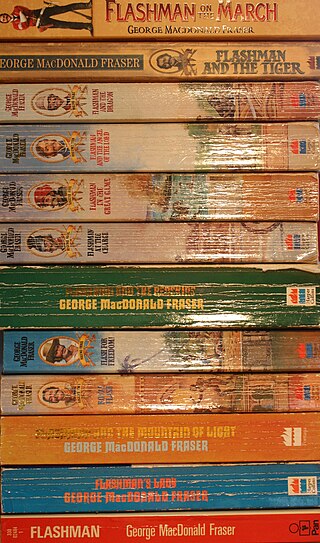
The Flashman Papers is a series of novels and short stories written by George MacDonald Fraser, the first of which was published in 1969. The books centre on the exploits of the fictional protagonist Harry Flashman. He is a cowardly British soldier, rake and cad who is placed in a series of real historical incidents between 1839 and 1894. While the incidents and much of the detail in the novels have a factual background, Flashman's actions in the stories are either fictional, or Fraser uses the actions of unidentified individuals and assigns them to Flashman. Flashman is a character in the 1857 novel by Thomas Hughes, Tom Brown's School Days; Hughes' version of the character is a bully at Rugby School who is expelled for drunkenness. The character was then developed by Fraser, and appeared in the 1969 novel Flashman. Fraser went on to write a total of eleven novels and one collection of short stories featuring the character.
References
- 1 2 3 Howard Thompson (13 January 1973). "TV: 'Tom Brown' Crosses Atlantic". The New York Times . p. 62.
- ↑ "Kathryn Hughes finds that Tom Brown's Schooldays is not the jolly romp most of us remember". the Guardian. 19 September 2008. Retrieved 25 November 2022.
- ↑ Charles Gillies "Mrs Whitehouse, Casanova, and Tom Brown's Schooldays", Glasgow Herald, 8 December 1971, p. 8
- ↑ Steven R. Welsivian (21 May 1973). "Fosse Adds Emmy to Oscar and Tony; 'The Waltons' Best Drama Series". The New York Times . p. 66.
- ↑ Thomas O'Neil (1998). The Emmys: The Ultimate, Unofficial Guide to the Battle of TV's Best Shows and Greatest Stars. Berkley Books. p. 167. ISBN 9780399524233.
- ↑ Neil Archer (2016). Beyond a Joke: Parody in English Film and Television Comedy. I.B.Tauris. ISBN 9781786720900.